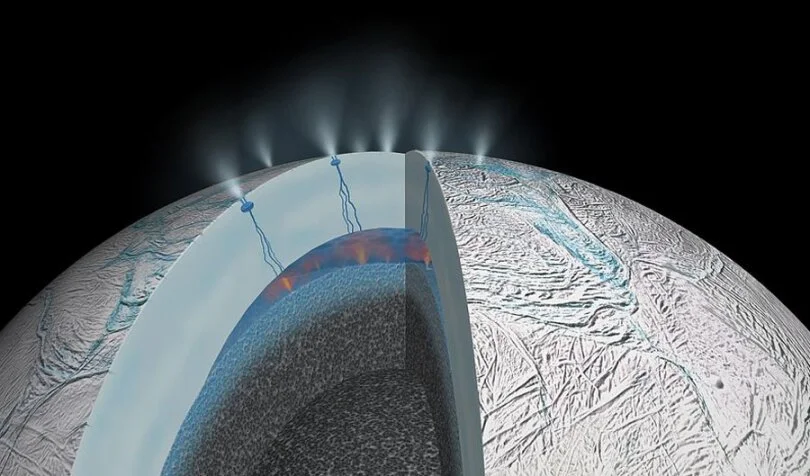
Enceladus: Could Seeding Saturn’s Moon Spark Life’s Frontier or Ethical Minefield?
Could Saturn's icy moon Enceladus be the next frontier for life, or are we venturing into an ethical gray area? While terraforming Mars remains a distant dream, a provocative new proposal suggests inoculating Enceladus with microbes to study the proliferation of life on a barren, yet habitable world. But is this a bold step toward understanding life's origins, or a risky alteration of a potential biosphere?

A recent paper published in the journal Space Policy highlights the potential benefits of such an experiment. Researchers suggest that seeding Enceladus could offer invaluable insights into how life spread across our own planet in its early stages. "Knowledge gained from the inoculation of icy moon oceans would especially apply to the radiation of life in early oceans, as might have been the case if life on Earth had begun in a deep ocean hydrothermal vent," the researchers wrote. Furthermore, an inhabited Enceladus might even serve as a resource hub for future explorations of the outer Solar System, potentially achievable with current technology.
However, the authors don't shy away from the profound ethical dilemmas this proposition raises. What if life already exists on Enceladus? Would we have the right to alter an entire biosphere, potentially forever? As the paper states, "A discussion about this potential biological frontier and the ethical questions it raises is timely," especially considering that similar questions could apply to other ocean worlds like Europa or Titan.
Adding to the allure of Enceladus, recent analysis of hydrothermal plumes emanating from cracks near its south pole indicates the presence of conditions conducive to microbial life. These plumes contain molecules, including molecular hydrogen and carbon dioxide, which are essential ingredients for methanogenesis, a crucial biochemical reaction for deep-sea microbes on Earth. This was revealed after the Cassini spacecraft dove into a plume of spray in 2015.
Meanwhile, researchers like astrobiologist Nozair Khawaja at Freie Universität Berlin are simulating Enceladus' conditions in the lab to understand how simple life forms might originate and survive. Khawaja emphasizes, "Where there is water, life is also possible." While acknowledging that the search is for bacteria-like organisms, any discovery of extraterrestrial life would dramatically shift our understanding of the universe and the potential for life beyond Earth.
The exploration of Enceladus holds immense promise for unlocking the secrets of life's origins and distribution. But it also demands careful consideration of the ethical implications. Should we risk altering other worlds in our quest for knowledge? What are your thoughts? Leave a comment below and share your perspective on this potentially revolutionary, yet ethically complex, endeavor.